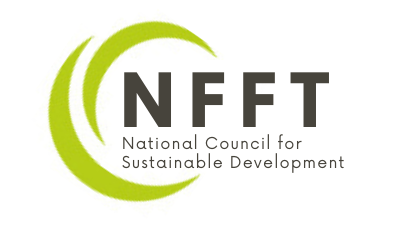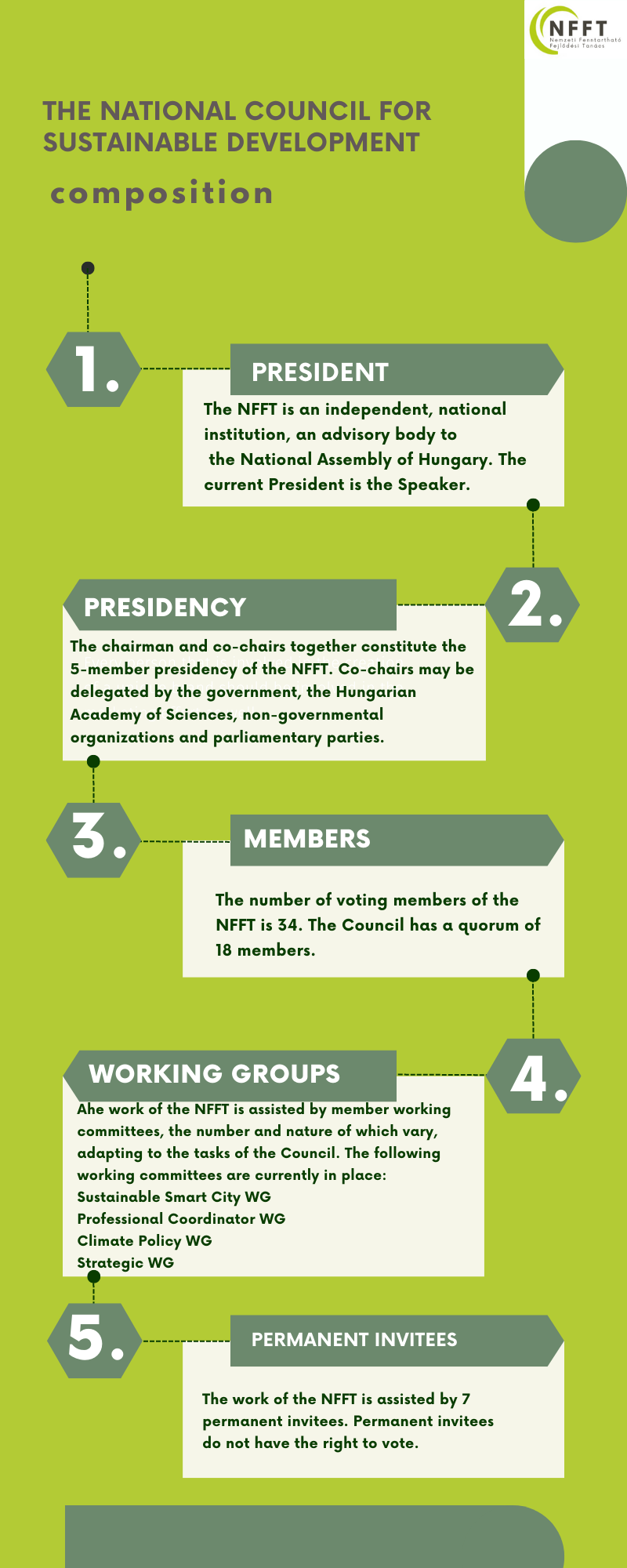NCSD celebrates its 10th anniversary at a jubilee meeting - NCSD
Asset Publisher
On December 7, the National Council for Sustainable Development held its jubilant meeting in the Parliament’s Delegation Room focusing on the topic of: Sustainability as the foundation of a liveable society and competitiveness.
The meeting was chaired by NCSD’s co-chair, Gábor Náray Szabó and László Kövér, NCSD’s chairman delivered a welcome speech stressing that the establishment of the Council and its activities afterwards was and continues to be based on an agreement that spans across several parliamentary cycles and defies the traditional dichotomy between government and opposition parties. The Speaker of the Parliament highlighted that sustainability is an issue that has a fundamental and long term impact on the future of our nation and not less importantly of the entire humanity whose significance has increased in recent decades.
Katalin Szili, NCSD’s founding chairwoman and current honorary chairwoman recalled the circumstances of NCSD’s foundation. Ms. Szili said their original intention was to reach social consensus with regard to sustainable development in the process of planning, consultation and monitoring and develop a strategy in harmony with international processes. She thanked László Kövér who, she believes, made enormous efforts to maintain the organisation.
Speakers at the meeting included János Áder, Hungary’s president who emphasized that economic growth and sustainability are not mutually exclusive terms and the climate change is not only a risk, it is also an opportunity. In harmony with a related international report, Mr. Áder urged the development of a new economic model which equally considers the economic, social and health benefits of natural capital, clean water, cleaner air and biodiversity while also taking the adverse effects of the exploitation of natural capital into account.
He reckons that we have to end the approach of “take-make-dispose” and we have to build a circular economy where waste is not seen as trash but as a resource. As an example, he mentioned the reuse and recycling of electronic waste.
János Áder introduced five action fields reminding initially that energy systems should be cleaned, the subsidies for fossil fuels and carbon dioxide emission levels should be lowered. In the context of smart urban development, he discussed the improvement of the public and non-motorised transport networks. Ha raised the issue about the need to increase the number of e-vehicles. Thirdly, he talked about sustainable land use, including the protection of rainforests, the improvement of low quality soils and the adoption of modern farming technologies. He stressed the importance of efficient water management and the improvement of household water networks. He reminded that in the developing countries 90 percent of the waste water is discharged untreated directly into rivers and seas.
Another speaker at the meeting was Erzsébet Schmuck, NCSD’s co-chair, who, similarly to László Kövér, praised the Council’s collaboration ignoring political differences while emphasizing the need for faster and more effective work in the future.
In his speech, István Farkas, NCSD’S co-chair focused on the key role of morals in people’s and the society’s life, which he underpinned with examples from history.
Balázs Weingartner, state secretary spoke about the government’s responsibilities in implementing the sustainable development goals.
At the end, Gábor Bartus, NCSD’s secretary gave a speech titled “Do we have proper sustainability foundations to build a liveable and competitive society?”. He talked about the rationale of sustainability and its connection to Hungary’s current political ambitions and as an optimist foresight described the policy actions we have at our disposal to achieve sustainability.
He stressed that sustainability indispensably requires good foundations of ecological resilience, social resilience and competitiveness as well as long term conditions of good quality life. Policy means to achieve sustainability include the improvement of awareness, commitment and tolerance within the society, the mobilisation of capitalist forces with the help of economic incentives, in particular to protect natural resources, the promotion of entrepreneurship, labour and business based society and the horizontal coordination of policies.


